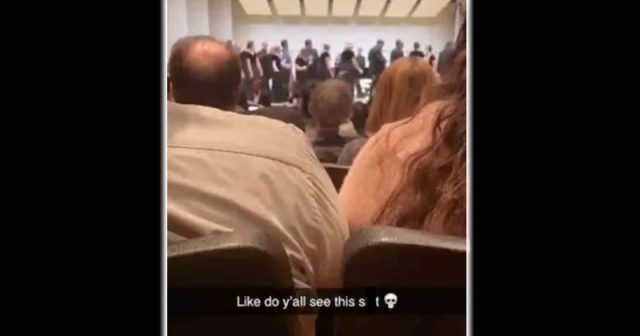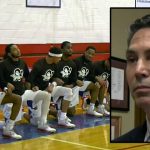When a mostly white college choir sang “negro spirituals” during a performance at their university, the group was quickly accused of “cultural appropriation.” After hearing the allegations, the professor who led the performance fired back with a response of his own.
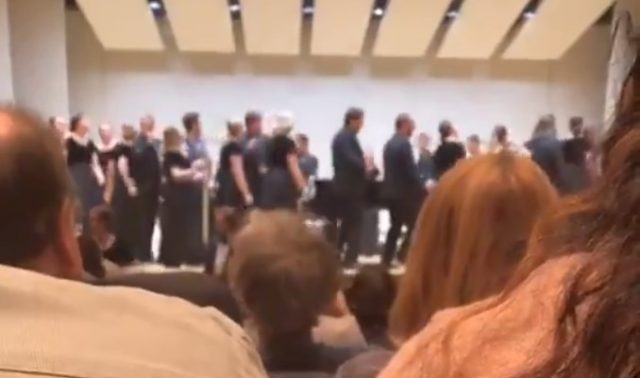
Dr. John Wesley Wright, a professor at Salisbury University in Maryland, made waves after video clips of a performance given at Western Michigan University by a mostly white vocal ensemble were shared on social media. The footage was captured and posted by Shaylee Faught, a WMU music student who attended the performance and called comments Wright made during the performance “ignorant.”
The WMU production in question, led by Wright as a guest professor, was called “Spirituals: From Ship to Shore” and included or songs that black slaves sang in the 18th and 19th centuries, according to WMU’s student newspaper the Western Herald. The performance of these “negro spirituals” by the mostly white vocal ensemble elicited angry accusations of “cultural appropriation.” However, that wasn’t the only issue.
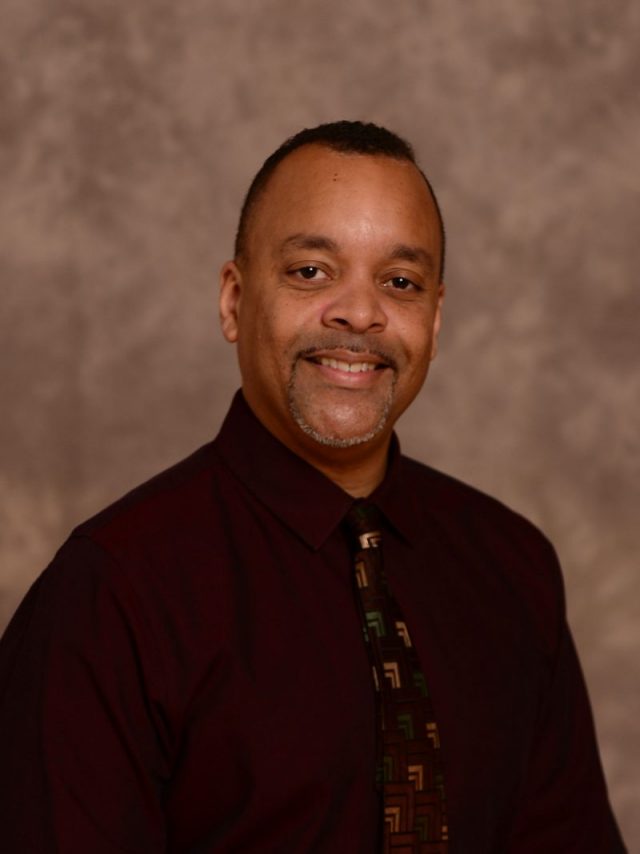
Further angering those who were already upset over the performance, Wright allegedly made comments during the production that also struck a chord. According to the black guest professor, the spirituals sang during the production “don’t belong to one race.” Instead, Wright reportedly explained that the songs had become “so entrenched in United States history and culture that they ‘had no ethnicity’ and are ‘American songs,'” according to “multiple members of the majority white production and audience,” The Blaze reported.
That explanation didn’t sit well with Shaylee Faught, who took to Twitter to express her disdain. “So apparently Western Michigan University thinks it’s ok for WHITE peoples to sing negro spirituals while the instructor talking bout ‘these songs don’t belong to one race.’ They sure as hell DO,” Faught wrote alongside a video of herself frowning as the ensemble sings “Wade in the Water.”
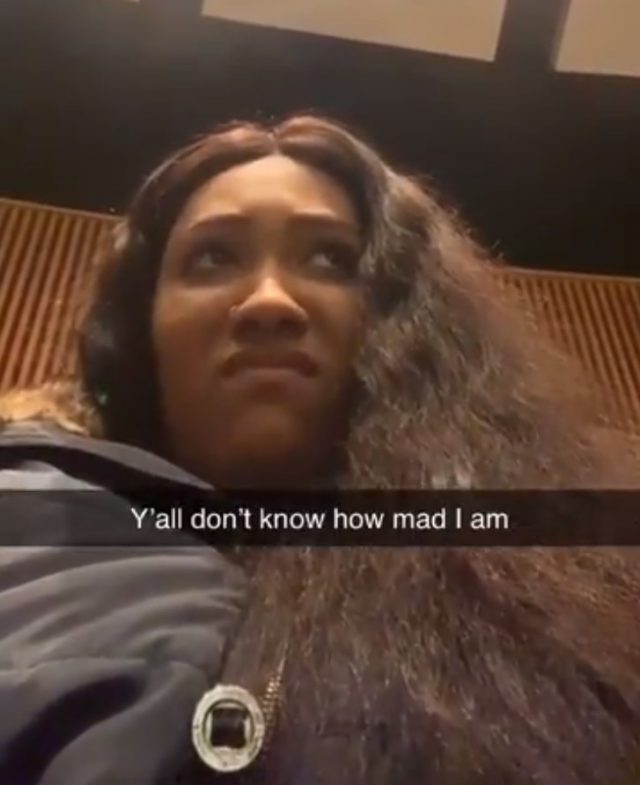
“The instructor was BLACK and sounded uneducated and ignorant with some of the stuff he said all while allowing them to sing about ‘freedoms’ and ‘segregation’ like slavery was a joke,” Faught wrote in another Twitter post, featuring video footage of the performance. In addition to lambasting the production online, Faught also sent an email to WMU’s dean, the dean of fine arts, the board of trustees, the director of the school of music, and the office for diversity and inclusion venting her outrage, according to WKZO.
“While I understand the importance of education, I think there is a fine line between appreciation and appropriation,” Faught’s email said in part. Calling the concert “very inappropriate,” Faught alleged that the program was portrayed as if “it is all fun and games and is merely entertainment,” adding that, “As a black woman, Negro Spirituals are [a part] of my history and my culture, and it signifies the struggle and hardships my ancestors went through.”
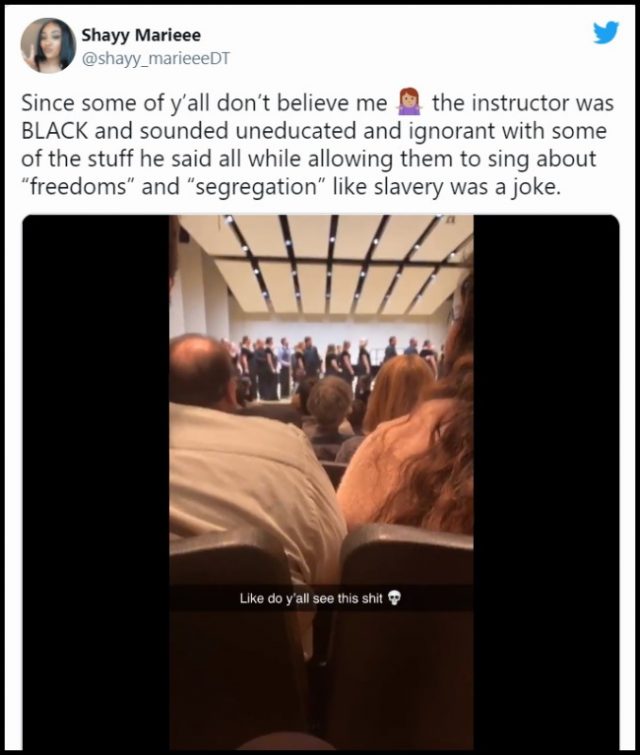
In addition to asking for a public apology from the school, Faught said that Wright should never be allowed back to WMU as she insisted that students should be consulted when similar shows are planned in order to avoid insensitivities. Unfortunately for Faught, the black guest professor who led the performance wasn’t swayed. In fact, he not only disagreed, but he also flat out refused to apologize.
“I do not feel the need to have to defend what I’m doing, and I’ve done this for 30 years and to great response,” John Wesley Wright told the Herald. He also raised questions regarding Faught’s motives and wondered whether she had been “investigated,” adding that one of his mentors had questioned Faught’s mental health, the school paper said.
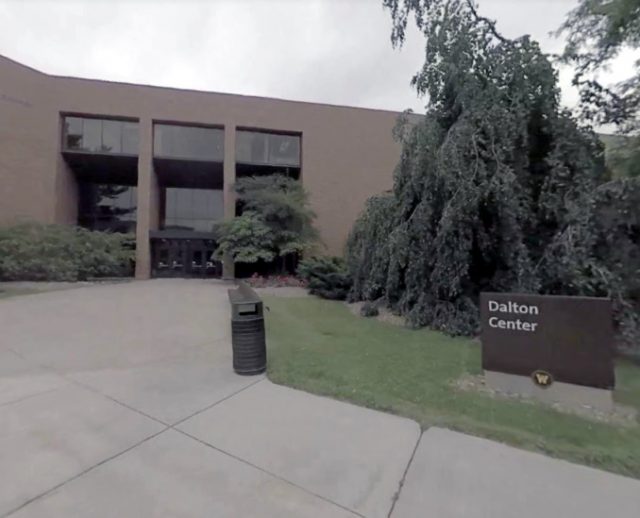
Choir members seemed to have mixed feelings about the performance. “Our instructor was African-American, and he said it was okay because the songs aren’t just [black] culture,” Allison Rousseau, who sang in the controversial show, explained, adding, “It was just so conflicting to be a part of that. I’m upset that I didn’t say something before because I didn’t know how many people felt the same way that I did.”
However, a black member of the choir, who was also part of the show, seemed to sing a different tune — no pun intended. “I don’t think that much needs to have been done differently,” said Tre Bryant, proclaiming Wright was on the mark with the production. “Dr. Wright did his due diligence of educating the audience and performers of what they were doing and what the songs meant,” Bryant furthered, explaining that the spirituals had evolved and become part of the larger language of music, such as in blues, rock, and jazz.
According to Bryant, everyone should know the songs’ origins, which is why Wright said the songs were for everyone. “We cannot expect people of other races to truly understand what our people had to go through and the songs they sang just to make it through the day if we are not willing to allow them to learn, and that’s what this was meant to be,” Bryant said.
DeUnique Dorris, director of outreach for WMU’s Black Student Union (BSU) who was an audience member during the performance, disagreed, calling Wright’s comments ill-conceived given the ethnicity of the singers. “The teacher wasn’t acknowledging the history when he’s saying it’s for everyone,” Dorris alleged. “Yeah, it’s for everyone to hear, but it takes away the meaning when it’s from a mostly white cast.”
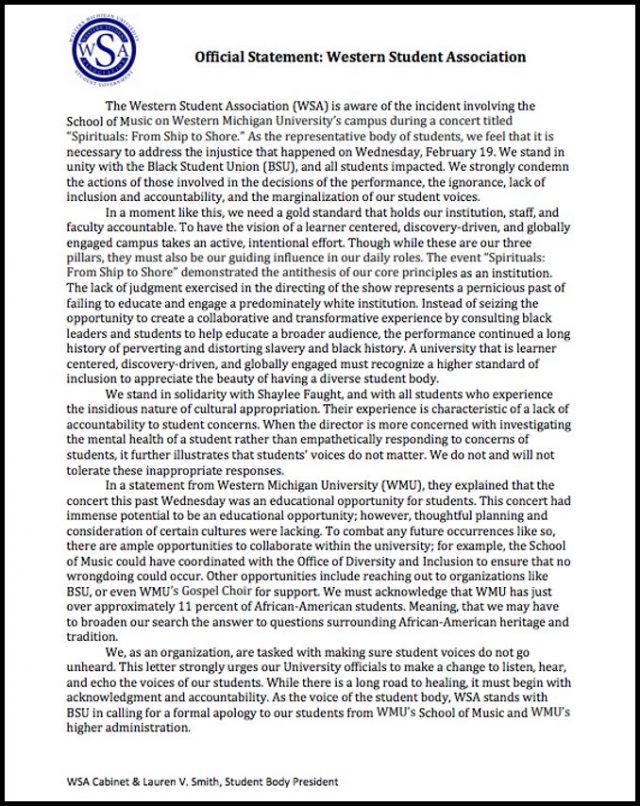
The BSU also demanded an apology, calling the performance appalling and “another example of racial insensitivity allowed on WMU’s campus.” WMU’s Student Association also sided with Faught, lambasting the “insidious nature of cultural appropriation” that the students experienced during the production.
“We stand with Shaylee Faught and the students who experience the insidious nature of cultural appropriation. Their experience is characteristic of a lack of accountability to student concerns. When the director is more concerned with investigating the mental health of a student rather than empathetically responding to concerns of students, it further illustrates that student’s voices do not matter. We do not and will not tolerate these inappropriate responses,” the WMU’s Student Association said.
The school called Dr. Wright’s comments about Faught “unfortunate” and said, “the student’s perspective is real and is important, without a doubt.” However, perspective is a point of view, and as we see here, they vary. Both Wright and Faught have different points of view regarding the difference between appreciation and appropriation. Since it seems one’s intent makes the defining difference, we have to ask whether the choir was attempting to adopt an element of African-American culture or if the black professor was simply educating others and encouraging an appreciation of that culture. You decide.


